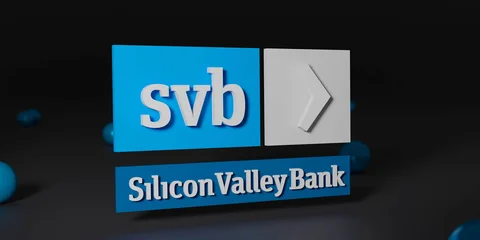
Silicon Valley Bank (SVB) had a liquidity/solvency crisis in the middle of March 2023, and was taken over by the Federal Deposit Insurance Corporation (FDIC). Since SVB had a very large number of startup customers, this has had a huge impact on the startup community. Fortunately, all deposits were guaranteed by the FDIC, even beyond the $250,000 limit, but equity holders lost their money, and it’s not currently clear if bond holders will lose some or all of their money.
Where does SVB’s venture debt practice stand now?
So startups that had funds on deposit at SVB don’t need to worry about getting that money back – it’s been guaranteed by the federal government. But there’s another aspect of SVB’s business that is a big concern to early-stage companies – their venture debt practice.
Venture debt is incredibly important to the startup ecosystem. Most people think about venture capitalists when they think of startups, but venture lending is often critical to financing a startup. Venture debt is a type of loan offered to early-stage, high-growth companies that are backed by venture capital. These loans supplement venture capital, helping startups reach milestones or the next fundraising round, and they frequently include specific terms like repayment terms, financial covenants, and other restrictions that reduce the credit risk to the lender.
SVB’s book of venture debt at the end of Q4 2022 appears to have been $6.7 billion. That amount could have grown since the end of 2022, but $6.7 billion is a pretty large amount of debts outstanding to venture-backed companies. In addition, SVB’s equity warrant portfolio, which they would acquire as part of their venture loans, was valued at $383 million at the end of Q4 2022.
What happens to all those venture loans?
Many of our clients, especially those with commitments or existing loans from SVB, are asking us, “What happens next?” And on March 14, 2023, SVB’s new CEO, Tim Mayopoulos, held a conference call to discuss this and other issues. And one of his main goals is to reinstill confidence, and get depositors to bring their money back to SVB, because those deposits underpin many of these venture loans. And currently deposits at SVB are incredibly safe, since every penny has been guaranteed by the FDIC.
At a high level, when customers deposit funds at a bank, the bank can loan part of those funds to other customers, to earn interest. And if deposits aren’t there, SVB will have a hard time funding loans. So SVB’s priority is to get these deposits back. Mr. Mayopoulus made several points:
- There are no changes to all existing credit facilities, whether drawn or undrawn. SVB will stand by any unfunded commitments and any terms they have set.
- SVB is open for business and willing to write new loans.
- Companies that borrowed from SVB had a banking relationship mandate, which required them to keep their deposits at SVB, which is standard banking practice. Some nervous customers pulled their funds from the bank, which violates their covenants and could put them at risk of default. SVB will work with those companies to return those funds without penalties.
- If your company has an unfunded loan commitment, you can put in a draw request and draw down those funds.
What don’t we know about SVB’s venture lending?
There’s still some ambiguity about some aspects of SVB’s venture debt business. It’s too early to know how some of these issues will resolve. Those include:
- Material adverse changes (MACs) are clauses that allow a bank that provides a venture loan to refuse to fund the loan if a startup isn’t doing well or if investors have abandoned the startup. Right now we aren’t sure how SVB will use those covenants.
- We still don’t know what might happen if another entity buys SVB or just its venture debt operation. Venture debt has proven to be very resilient, and venture debt portfolios are valuable, so there will be interest in purchasing that.
SVB is open For business
The important takeaways for startups that have venture debt through SVB is that unfunded commitments will be honored, companies will be allowed to return funds to SVB with invoking a covenant breach, and that SVB is open for business. Hopefully that will help startups with SVB venture debt know where they stand at the moment. If you have questions about venture debt or startup accounting, please contact us. You’ll also find more information about startup accounting on our YouTube channel and our blog.
Looking for alternatives? Here’s a list of the top Silicon Valley Bank competitors.












